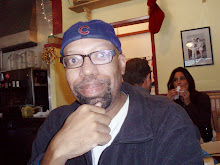For many of the nominees and eventual winners, the Academy Awards are a once-in-a-lifetime occasion. The chances are very good that those lucky few chosen to take to the stage of the Kodak Theater on Sunday to get one of their very own statuettes to take home and pat and call George (its name is Oscar!) will never get to this point again. Which is why the annual pleas of Gil Cates, the otherwise venerable producer of the ceremony, about keeping speeches short and to the point have grown tiresome.
Every year he works the Oscars, Gates makes it his sworn duty to implore, cajole and threaten nominees about not abusing their moment in the sun by doing things as ghastly as actually showing gratitude to the people in their lives who helped them get to that point. He always does his finger-wagging act at the annual nominees' luncheon, as if he is the stern vice principal laying down the law to a bunch of unruly kids. One year he even offered a free widescreen television for the winner with the shortest speech. He does this, he says, to keep the awards show to a manageable length. But he forgets two basic truths about the Oscars:
1) The show is long, period.
2) A better way to shorten it would be to get rid of some of the silly production numbers or, more recently, the superfluous film montage that say nothing about anything, that seem to always find their way into the ceremony.
Last year, Cates made the embarrassing call of having some of the "lesser" awards given out in the theater audience, so those winners never got to the stage, the better to cut out the few seconds it takes to reach the podium. (Longer, of course, if you're not one of the gilded few and thus don't have top-notch seats in the front rows.) This year, there apparently will be a plan to leave a few rows of middle seats aside for "rotating" groups of nominees. At commercial breaks, so the viewing public can't see, the next round of craft nominees will be moved up so they can get to the stage faster. And now comes word of a video tape, hosted by Oscar winner and Academy vice president Tom Hanks, in which handy tips are given out to prospective winners about the proper way to comport yourself if you are honored with your very own Academy Award.
An article about the tape is linked to the subject line, but here's one handy highlight: Winners have just 60 seconds from the time their name is announced to when they will, in theory, be played off the stage by the orchestra, to give their speeches. This is even worse than the previous 30- or 45-seconds winners had to finish up their remarks in the past, not counting the jaunt to the head of the theater. The ridiculous part about this, of course, is that these rules only apply to those whose names we don't know. George Clooney or Ang Lee or Reese Witherspoon or Felicity Huffman won't have to worry about having the indignity of being interrupted by the orchestra should it take them 1:01 to say what they have to say, just like Halle Berry and Julia Roberts and Steven Spielberg weren't in the past.
(By the way, I just popped my tape of the 1994 Academy Awards into the VCR and timed Tom Hanks' remarks after he won best actor for Forrest Gump, and though they definitely were heartfelt, if a little babbling - not Laurence Olivier babbling, but babbling nonetheless - they clocked in at a not-so-speedy 2:01. BUZZ - thanks for playing, Tom, but no cigar.)
The Academy Awards, for all of its artifice and glitz and pomposity, is an example of a real reality show. Most of that reality comes from the emotion displayed by those who win - the laughs, the tears and, yeah, the gratitude. But Gil Cates seems determined to squeeze all of that out of the experience in the name of speed. My advice to him, like he'll listen, to get off his high horse, grab and pillow and get comfy. No one is going to go on all night, 'cause even the winners want to get out of there as soon as possible so they can go to the Governors Ball and munch on Wolfgang Puck's spread. But if it take them a couple of minute to speak their minds, so be it. They earned it, didn't they?
Wednesday, March 01, 2006
Subscribe to:
Post Comments (Atom)




3 comments:
Yeah, dammit!
Last year's film montage - on no particular subject- showed a clip from Terry Gilliam's Brazil. What that meant was that, for once, the incestuous loonies of the Academy were finally looking outside their circle a little bit and letting what is The Greatest Film of All Time (tm) leave it's paw prints on what is supposed to be the industry's biggest, best and boldest clebration of the arts and sciences of filmmaking. They have a long way to go before such ridiculous films as Crash and Munich are no longer hoisted onto pedestals, but this was like a little toe in the door for good taste and sense.
Amen, Dave!
Post a Comment